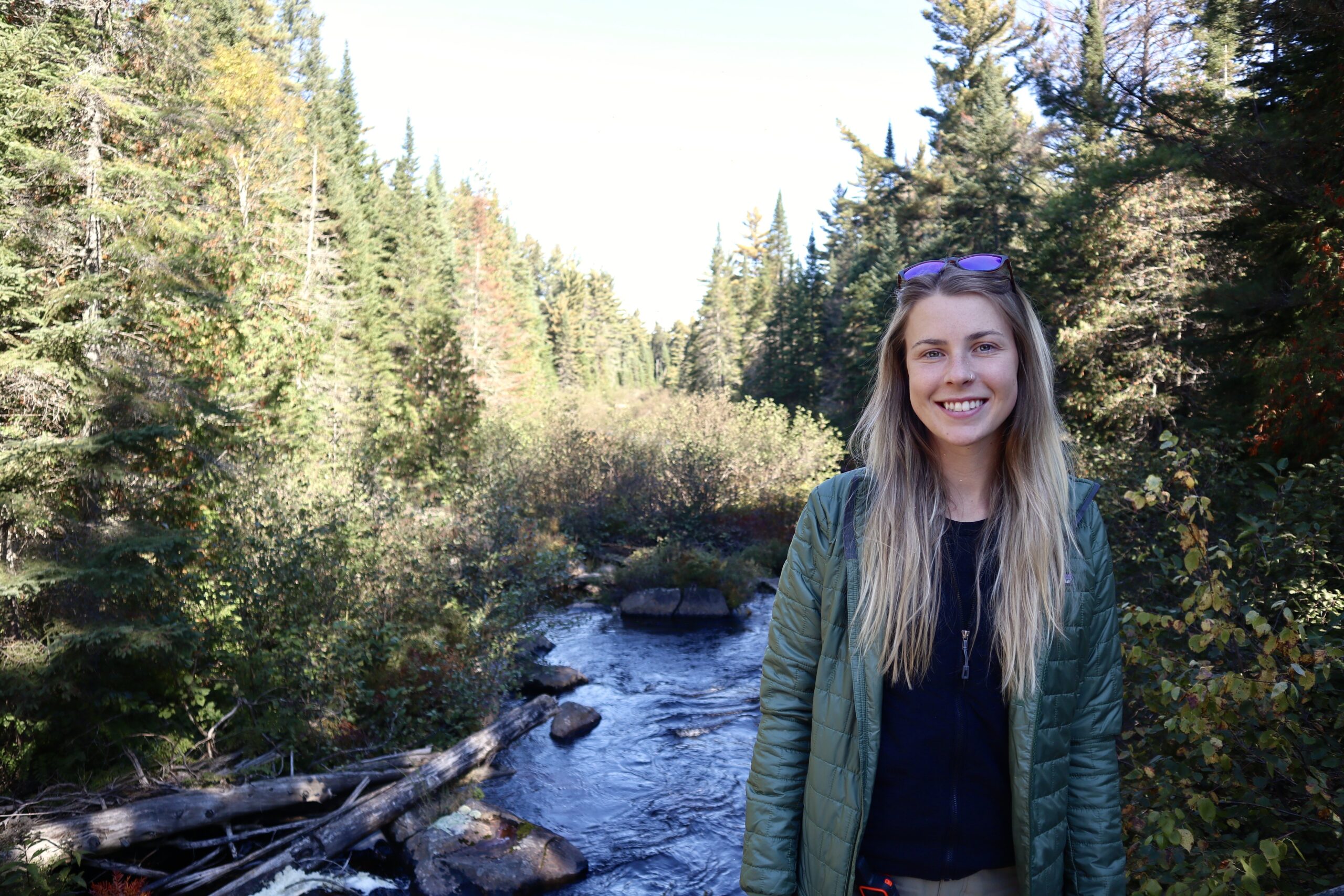OFAH Student Research Grants
Each year the OFAH and partners award three different grants worth $4,000 each to university students researching fish and wildlife topics that are helping to improve resource management. Any graduate or post-graduate university student currently researching a fish and wildlife topic, and whose findings would benefit Ontario’s fish and/or wildlife management can apply. Submissions are evaluated for scientific merit, relevance to OFAH Fish and Wildlife management, budget and overall quality of application.
The 2022 winners are…
OFAH Zone G Wildlife Research Grant
Shilah LeFeuvre, Trent University — Using Indigenous Knowledges and Genetics to Study the Distribution and Behaviour of Eastern Wolves (Canis lycaon)
In Canada, science is dominated by colonization. To truly decolonize science, research must take Indigenous Knowledges into consideration. For First Nation communities, Indigenous Knowledges is a way of knowing that comes from their own communities. Indigenous Knowledges are passed down from ancestors through generations, and can be expressed in various ways such as oral, ceremony and creation. Both knowledge system have their strengths, and they can work together. This was first described as “Twoeyed seeing” by Mi’kmaq Elder, Dr. Albert Marshall I will be using two-eyed seeing, alongside genetics, to study the distribution and behaviour of Eastern wolves in Magnetawan First Nation, Shawanaga First Nation, and Wiikwemikoong Unceded Territory. Wolves are culturally and spiritually important to First Nation communities. Ministry of Northern Development, Mines, Natural Resources and Forestry highlights the need for Indigenous Knowledges for the species at risk recovery strategy for Eastern wolves. Through interviews with each community, information of areas to focus sampling efforts, changes in populations and behaviours, and the impacts if Eastern wolves were to be lost would be will be shared. Radio-collaring will be used to gather spatial distribution (territory, movement) and pack counts. Genetic samples will be collected to provide pack composition. Trail cameras will collect behavioural data, pack structure, as assist with pack counts. Maps will be made that show the spatial ecology of Eastern wolves, and will assist with the species at risk recovery strategy to highlight better conservation and management strategies for Eastern wolves in Ontario.

OFAH Zone H Fisheries Research Grant
Erin Stewart, Trent University — Drivers of intraspecific variation in thermal tolerance and physiology of brook trout (Salvelinus fontinalis)
Thermal variability and warming water temperatures caused by climate change alter thermal habitat for stenothermic species like coldwater fish. Plasticity in behavioural and physiological responses to thermal change such as acclimation or range shifting can increase fish resiliency or adaptation potential under changing conditions. Therefore, studying thermal tolerance allows us to better understand population and species-specific resilience to climatic change through quantifying existing intraspecific variation. Past research on thermal biology of fishes has demonstrated intraspecific variation in thermal tolerance at the individual, family, and population levels, but we have yet to discern at what level (inter-individual or inter-population) this variation is most important to quantify and conserve, and what mechanism dries this variation: plasticity, genetics, or other factors such as life stage, body size, and environment. The objective of my research is to study thermal tolerance in brook trout to investigate intraspecific variation in key physiological responses to varying types of thermal stress. I propose quantifying intraspecific variation in thermal tolerance using five studies that will examine multiple indices across life stages, body sizes, and genetically distinct populations. These will include egg overwinter survivorship, upper thermal tolerance in lab and field environments, metabolic performance, and heat shock response. My research will help clarify what roles the different dimensions of intraspecific variation (ontological variation, phenotypic plasticity, or genetics) play in thermal tolerance and will therefore improve our understanding of population and species persistence in a changing climate.

OFAH Dave Ankney/Sandi Johnson Award for Avian Ecology
Meredith Meeker, Carleton University — Do Stormwater Management Ponds Support Avian Biodiversity Better Than Natural Urban Wetlands?
While we are losing wetlands across Ontario, Stormwater Management Ponds (SWMP) are being constructed to replace the loss of wetland ecosystem services. The impacts of SWMP on urban biodiversity is not well understood, are they a refuge or an ecological trap? I will explore how SWMP support avian biodiversity when compared to their natural urban counterparts, and how landscape composition and vegetation heterogeneity effects avian biodiversity across the study sites. We predict that SWMP will support a similar level of species richness but will lack in abundance, and that presence of neighboring wetlands and high vegetation at the site level will have strong positive effects on avian biodiversity. I will test these hypotheses by conducting marsh bird surveys and deploying autonomous acoustic recording devices across the City of Ottawa. We will determine the species richness and abundance for each site and then calculate the effect that the study site (i.e., SWMP versus natural wetland), landscape composition, and vegetation heterogeneity have on avian biodiversity for the purpose of influencing SWMP design and wetland restoration practices.

NOTE: Please check this page in October 2022 for the next cycle of research grant submissions.
2021 WINNERS
OFAH Zone H Fisheries Research Grant
Christian Therrien, University of Waterloo (Prevalence of thiamine deficiency and differences in dietary niche among lake trout strains stocked in Lake Ontario)
OFAH Zone G Wildlife Research Grant
Shannon Simpkins, Trent University (Quantifying White-Tailed Deer Trait Variation In Ontario; Connecting GPS and Genomics)
OFAH Dave Ankney/Sandi Johnson Award for Avian Ecology
Dariusz Wojtaszek, University of Western Ontario (Using intrinsic markers to improve existing northern pintail management)
PAST WINNERS (VIDEO)
Examples of research awarded in the past (view student research grant videos from OFAH conferences)
MORE…
In addition to the grants above, we also offer the following opportunities:
The OFAH/Fleming College Fish & Wildlife Scholarship
The OFAH/Fitzsimons Financial Fish & Wildlife Conservation Internship and the OFAH/BrokerLink Fish and Wildlife Conservation Internship is an exciting early-career opportunity to work with the OFAH’s fish and wildlife professionals on a range of policy and conservation program projects. Previous OFAH interns have gone on to undertake graduate degrees and/or work with provincial agencies and the OFAH.
